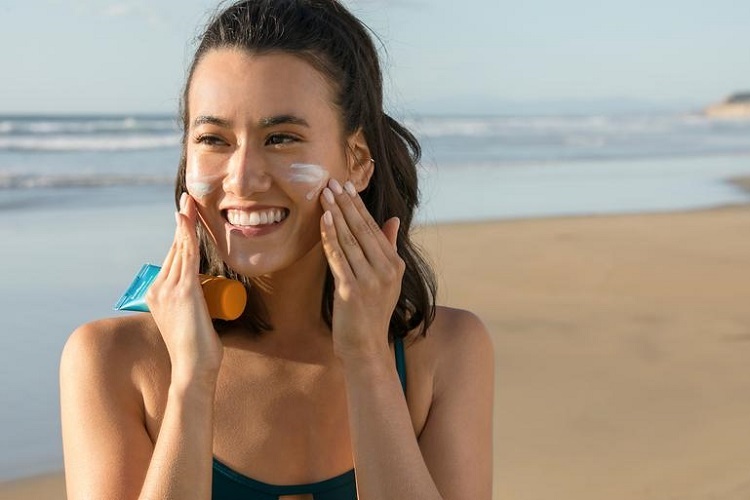When people think about taking care of their skin, most think about their normal day to day cleansing, moisturizing and sun protection routines. Others may be anticipating their next facial at their local spa. This makes sense considering that much of our lives consists of the ordinary and routine. However, there are also breaks in our daily routines which require us to reconsider how we need to adapt our beauty routine. One day you might be traveling. Another day you will be visiting a friend and spending the afternoon in their swimming pool, and the next day you have to cook a large meal for the entire family. Each of these special occasions carries with it different variables with regards to how we need to protect and care for our skin. Here we will discuss how you should adjust your beauty routine to compensate for these special occasions.
PROTECTING YOUR SKIN WHILE COOKING
As anyone who has cooked before knows, cooking exposes us to heat, grease, steam and any number of different ingredients sizzling up from hot frying pans. So, how does one protect their skin from these elements while cooking? One of the simplest and most effective methods is to use a moisturizer. A moisturizer will not only keep the moisture from being sapped out of your skin by the heat, but it also creates a thin barrier which prevents damaging particles in the kitchen environment from penetrating the skin. Second, due to the physical nature of cooking and the hot environments in which it is typically done, cooking can be very dehydrating and this can ultimately affect the radiance of your skin. Therefore, it is important to be conscious of the need to drink more water when preparing large meals. Finally, be sure to wash and exfoliate your skin after you are done cooking to prevent breakouts. Even though using a moisturizer will create a protective barrier for your skin, grease and food particles are still likely stuck on top of that moisturizer barrier which could clog pores. For this reason, it is important to clean your face thoroughly when the preparation is over.
PROTECTING YOUR SKIN WHILE TRAVELING
Protecting your skin while traveling presents unique challenges as there is no one size fits all approach. Your skin care needs will be different if you are traveling from a generally hot and humid place to a cold and windy place as opposed to a dry and sunny destination. However, it is generally good to remember that, if you are traveling from one type of climate to another, your skin will not be acclimated to the new environment and will be more sensitive to this environment than the people who live there. Therefore, for those traveling to colder, drier climates, moisturizer and protective coverings such as scarves of facial masks may help in avoiding skin issues. For those traveling to more humid environments, facial cleaners and facial wipes may be very useful as you might find that your skin is greasier than normal. Finally, it is recommendable that everyone, regardless of what type of climate you are traveling to, use sunscreen as a general care measure. Remember, skin can get sunburned even on what seems like a cloudy day. Finally, getting good rest and drinking plenty of fluids is important for maintaining your skin’s health while traveling as traveling tends to be a tiring and stressful experience which will reflect on your skin if not accommodated for.

PROTECTING YOUR SKIN WHILE SWIMMING
Swimming is an overall fantastic way to engage in healthy cardiovascular exercise while not exposing joints to damaging impact like running or weightlifting. However, it can wreak havoc on your skin. Protecting your skin while swimming mostly involves ensuring that you are not overexposed to sun or chlorine. Using a high SPF, water resistant sunscreen is the best way to handle the excess sun you will be exposed to, but what about the chlorine? This can be trickier as chlorine can lead to dry, flaky, itchy skin (and damaged hair). One lesser known way to limit the skin damage done by chlorine is to regularly check the PH levels of the swimming pool to ensure that it is not oversaturated with chlorine. Chlorine keeps swimming pools sanitary by killing germs and microbes but an excess is not necessary to achieve that goal and will negatively affect skin and hair. One way to protect skin from damage while swimming is to take a shower before and after entering the pool. Taking a shower beforehand ensures that skin is not too dry and, therefore, will not absorb the chlorinated water into its pores too readily. Showering after leaving the pool washes chlorine out of skin and hair to minimize the overall exposure. As a tip, it may be better to avoid indoor pools as indoor pools lack the ventilation that outdoor pools have and trap the gasses released by chlorine and other water sanitizers which can further damage skin.

CONCLUSION
It is certainly possible to have an exciting, eventful life and still be conscious of your skincare and beauty routine while doing so. It is, however, important to be conscious of how different activities can affect your skin and prepare yourself accordingly. Many people, even those who are normally conscious of their skin health, may get carried away by the moment of special events and later regret that they didn’t consider who to take care of themselves when they are left with dry, irritated, flaky or sunburned skin. Therefore, hopefully these tips will keep your skin glowing the next time you have a special activity planned.